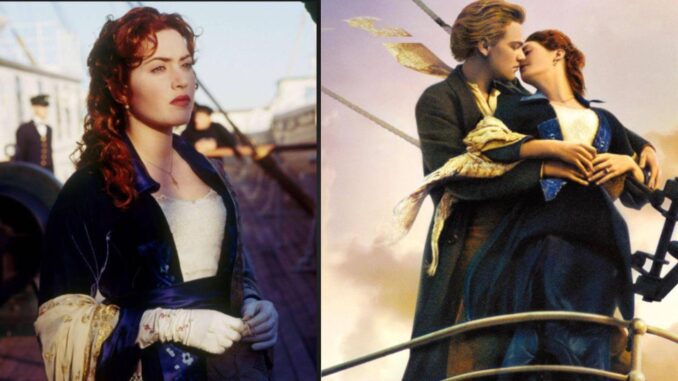
How Rose's Titanic Journey Became the Heart of the Film
James Cameron's Titanic is a cinematic colossus, a technical marvel that meticulously recreates the opulence and tragedy of the ill-fated liner. It’s a spectacle of disaster, a triumph of visual effects, and a historical homage. Yet, for all its grandiosity and meticulous detail, the film's enduring resonance, its very heart, doesn't lie in the physics of its sinking or the grandeur of its sets. It resides, instead, in the deeply personal, transformative journey of its protagonist, Rose DeWitt Bukater. Through Rose, audiences don't just witness a historical event; they experience a profound human drama of liberation, love, loss, and the indomitable will to live.
From her very first appearance, Rose is a figure of stifled potential, a vibrant spirit encased in the corsets and calcified expectations of Edwardian high society. Her engagement to Cal Hockley is less a union of love and more a transaction, a gilded cage designed to save her family from financial ruin. The Titanic itself, initially, is just a larger, more opulent version of this confinement. We see her navigate its grand halls with a practiced, weary elegance, her eyes reflecting a silent despair. It is through her lens that we, the audience, are introduced to this magnificent vessel, but also to its stark class divisions and the suffocating societal norms it represents. Rose's initial journey aboard the Titanic is one of internal captivity, setting the stage for the dramatic unfurling of her true self.
The catalyst for Rose's awakening, of course, is Jack Dawson. He is not merely a love interest but a liberator, a force of nature who sees beyond her societal trappings to the defiant soul within. Their burgeoning romance is depicted not as a scandalous affair but as a necessary act of rebellion and self-discovery. Through Jack, Rose experiences genuine freedom for the first time: spitting off the deck, dancing in steerage, allowing herself to be sketched in a moment of raw, palpable vulnerability. These moments are not just romantic interludes; they are pivotal steps in Rose dismantling the life she was forced into. The "Heart of the Ocean" diamond, initially a symbol of her oppressive engagement, transforms into a shared secret, a testament to a love that transcends wealth and status, beating in rhythm with her newfound spirit.
As the ship succumbs to the icy depths, the external disaster mirrors Rose's internal cataclysm. The sinking of the Titanic becomes a grand, tragic metaphor for the destruction of her old life. The physical struggle for survival – battling the rising water, the stampeding crowds, the brutal cold – is intertwined with her emotional fight for autonomy. Her desperate clinging to the floating door, and later, to the whistle that saves her, are not just acts of physical endurance but powerful affirmations of her will to live, a will ignited and nurtured by Jack. His final sacrifice, his dying wish that she "never let go," is not just about survival, but about living a full, vibrant life in his memory. It's a promise that she not only keeps but embodies.
The true heart of the film, then, lies in the elderly Rose Calvert, the narrator whose memory breathes life back into the legend. Her vivid recollections are not merely historical recountings; they are the living testament to the choices made on that fateful night. Her full life, depicted in a montage of horseback riding, flying planes, and embracing adventure, is the ultimate fulfillment of Jack's sacrifice and her own hard-won freedom. The throwing of the "Heart of the Ocean" into the sea is the final, symbolic act of severing ties with her past enslavement, acknowledging that the real treasure was not the diamond, but the life she built.
In conclusion, Titanic is more than a historical epic or a tragic love story; it is a profound journey of self-emancipation, seen through the eyes of a young woman who dared to defy her destiny. Rose's personal transformation, from a captive bird in a gilded cage to a free spirit soaring through life, provides the emotional ballast that anchors the film's monumental scale. Her voyage on the Titanic was not just a transatlantic crossing, but a crucible that forged her identity, making her journey the undeniable and enduring heart of James Cameron's masterpiece.